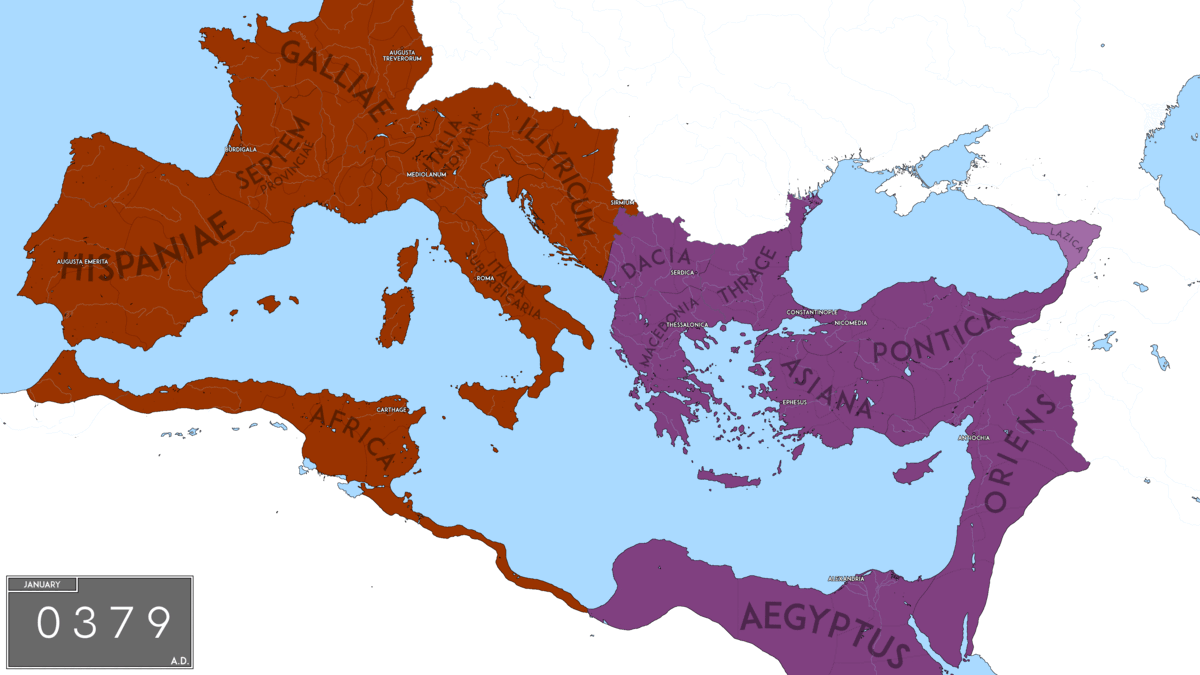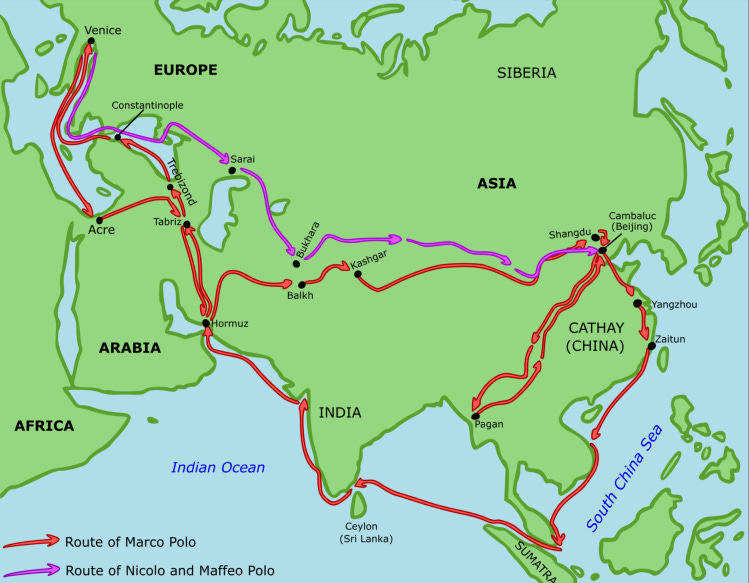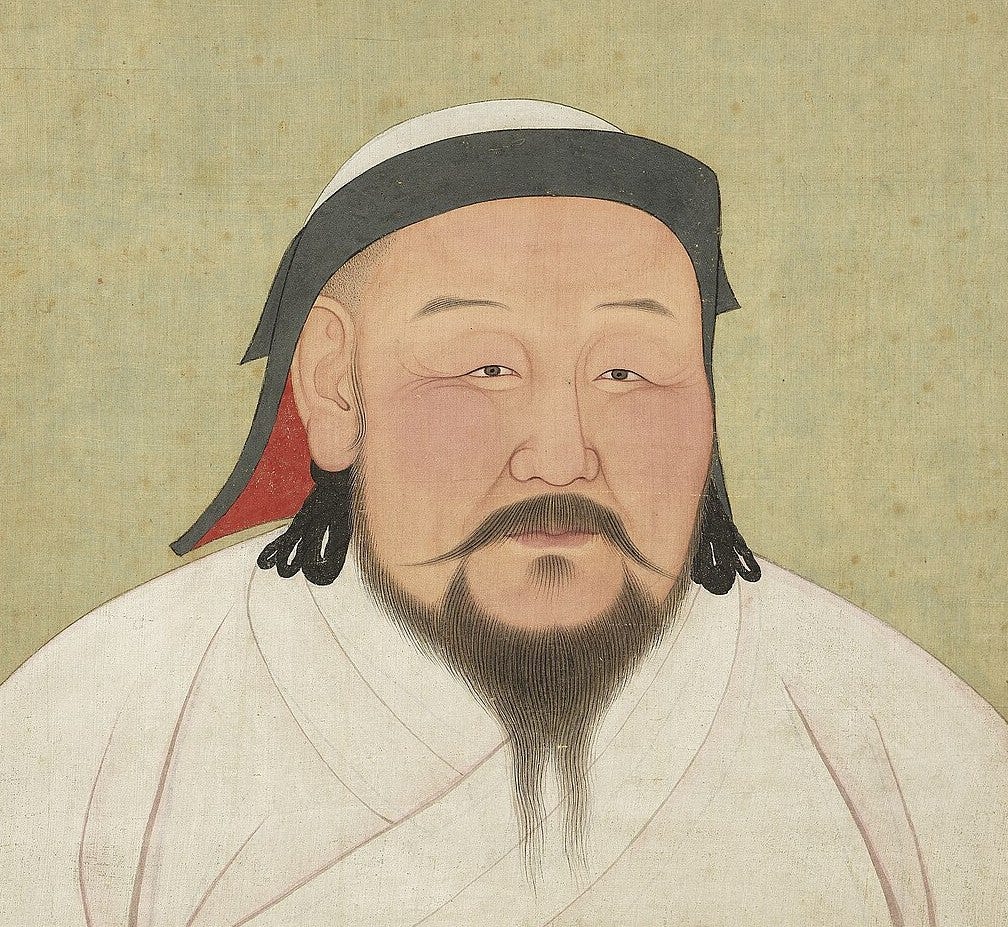Dear Classical Wisdom Kids,
Depending on your definitions, Marco Polo is outside of realm of the “Classics”… However, I do like to include the Eastern Roman Empire (I mean, it’s even in the name), and at least we know he went through our classical themed territories…so I feel justified!
This is a pretty cool gif showing how the Roman Empire had shrunk by Marco Polo’s time (for reference, Marco Polo left for his travels in 1271):
Either way, it’s such a cool story… so much adventure and exploration… I couldn’t help but be inspired by our recent trip to Venice (we even saw his house!) to learn more about this remarkable man.
And what better way to discover Marco Polo (see what I did there?) than to discuss his accomplishments with our Classical Wisdom Kids!
So this week, we’ll go over the Life of the Great Traveler…
Classical Wisdom Kids Club Members: Enjoy below our printables, crafts and games below (as well as our review and discussion section)… Be inspired by Mongolian seals!
All the best,
Anya Leonard
Founder and Director
Classical Wisdom and Classical Wisdom Kids
Marco Polo: The Life of a Great Traveler
By Edward Whalen
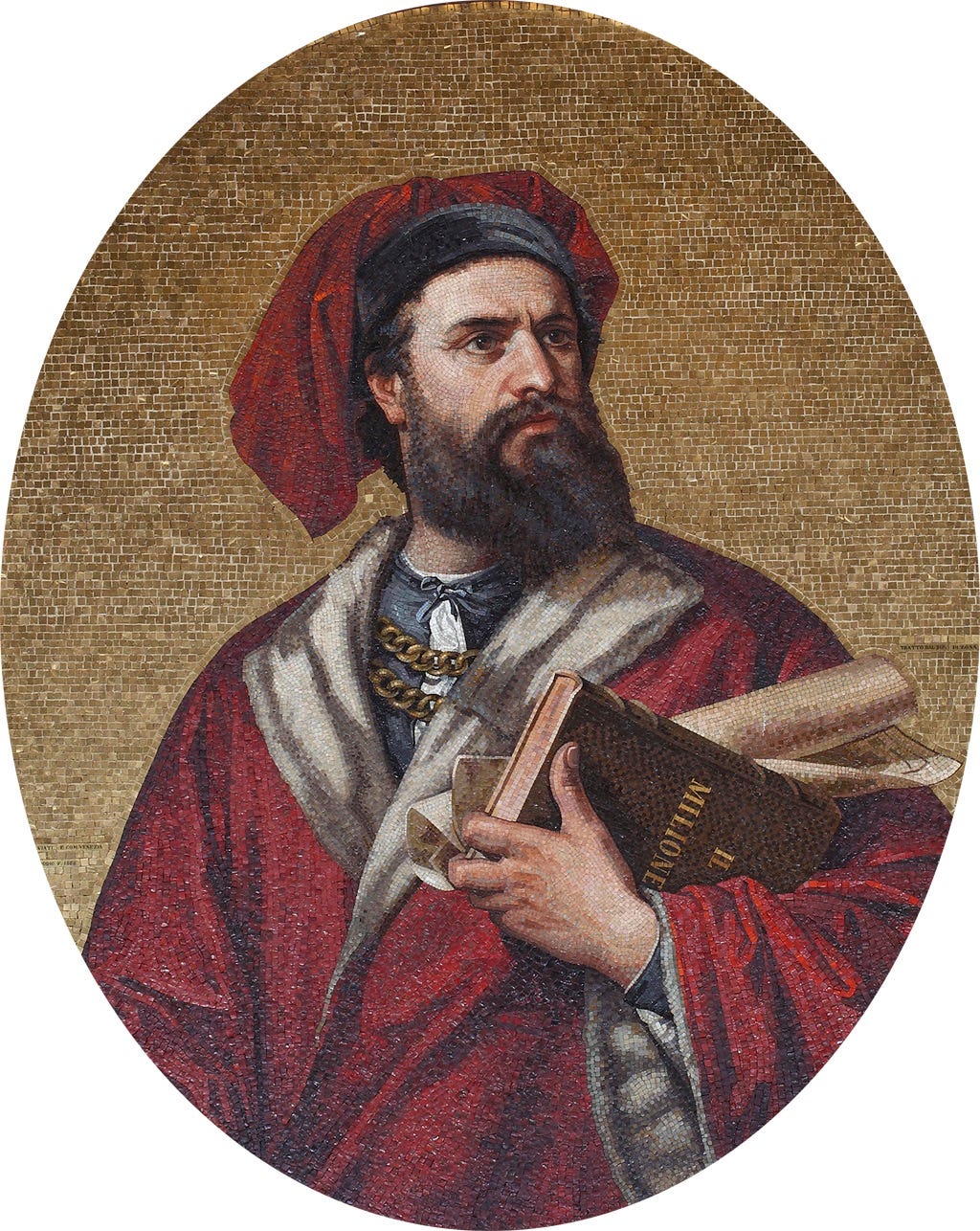
Marco Polo was an Italian explorer and adventurer who helped Europeans learn about Asia. He can be said to have inspired many later great explorers such as Christopher Columbus.
Marco was born in Venice (Italy) in 1254. At the time it was one of the most important cities for trade in the world. His family had become successful traders and merchants. His father and uncle had traveled far and wide in Asia. They had met the Mongol ruler Kublai Khan (1215-1294) who ruled much of what is now East Asia, including all of China. His grandfather was the great Genghis Khan.
Marco’s father and uncle returned to Europe and after a short stay began to travel again. This time they took Marco who was only 17 or 18 years old. First, they sailed to the Holy Land, where they were able to meet the Pope. He gave them letters and sacred oil to give to the Mongol ruler, who was possibly the most powerful man in the world at this time.
They traveled on what is known as the Silk Road, so-called because precious silk cloth was moved on it from China. The Polos had good relations with Kublai, as he had given them a letter which granted them safety.
Marco and his father and uncle rode on horseback through Turkey and journeyed through Iran. It was dangerous as they had to cross deserts and they feared attack from robbers. They reached modern Afghanistan and rested, but Marco, ever restless, explored the area, which he thought to be beautiful. Leaving Afghanistan, they crossed over the high Pamir mountains before descending into modern western China.
In 1275 the Italian merchants reached Shangdu, in Mongolia, where Kublai Khan had his summer palace. The Khan liked the young Italian and trusted him with several jobs to collect information.
Marco was always looking for excitement, and wandered all over the Mongol Empire, including south China and Burma. The Mongols often hired foreigners in China to work for them. Marco learned to speak Chinese and was absolutely fascinated by China. Kublai Khan enjoyed the company of Marco as he was smart and told him great stories about his travels.
While Marco loved China, he grew homesick, but the Mongol Emperor would not let him go home. However, a Mongol Princess was going to be married in Persia (Iran) and Kublai Khan agreed to Marco’s request that he help her on the dangerous journey. Marco left China with sadness, but Kublai Khan was very old, and a new Emperor may not have been as kind to him.
Marco sailed to Persia on some ships given by the emperor. Then he and his relatives travelled through Persia and Turkey and in 1295 he eventually made it home, after 24 years. The return of the three Polos to Venice after so many years was seen as amazing. They had become very rich because of their travels, and this encouraged others to travel on the Silk Road. Because of his wealth and amazing stories, he became known as ‘the Million’ in Venice.
Marco was rich but he still wanted adventure. The explorer joined Venice’s war against its great enemy Genoa. He paid for a warship to be built and in a battle at sea, he was captured and thrown into a prison. Here he shared a cell with a writer from Pisa and told him his remarkable stories of the Silk Road, China, and the Mongols. The writer turned Marco’s tales into a book known as ‘The Travels of Marco Polo’. In it, he tells of his travels and describes life in China and its many marvels, such as paper money, which people in Medieval Europe, thought was crazy.
The explorer was released from prison and returned home. He continued to work as a merchant and died in 1324.
The Travels of Marco Polo was a big hit in the Middle Ages. Many accused the Italian explorer of telling tall tales…but many of his details have been shown to be true. Whatever the case, the book and Marco has been loved for centuries and continues to inspire explorers and adventurers around the world.
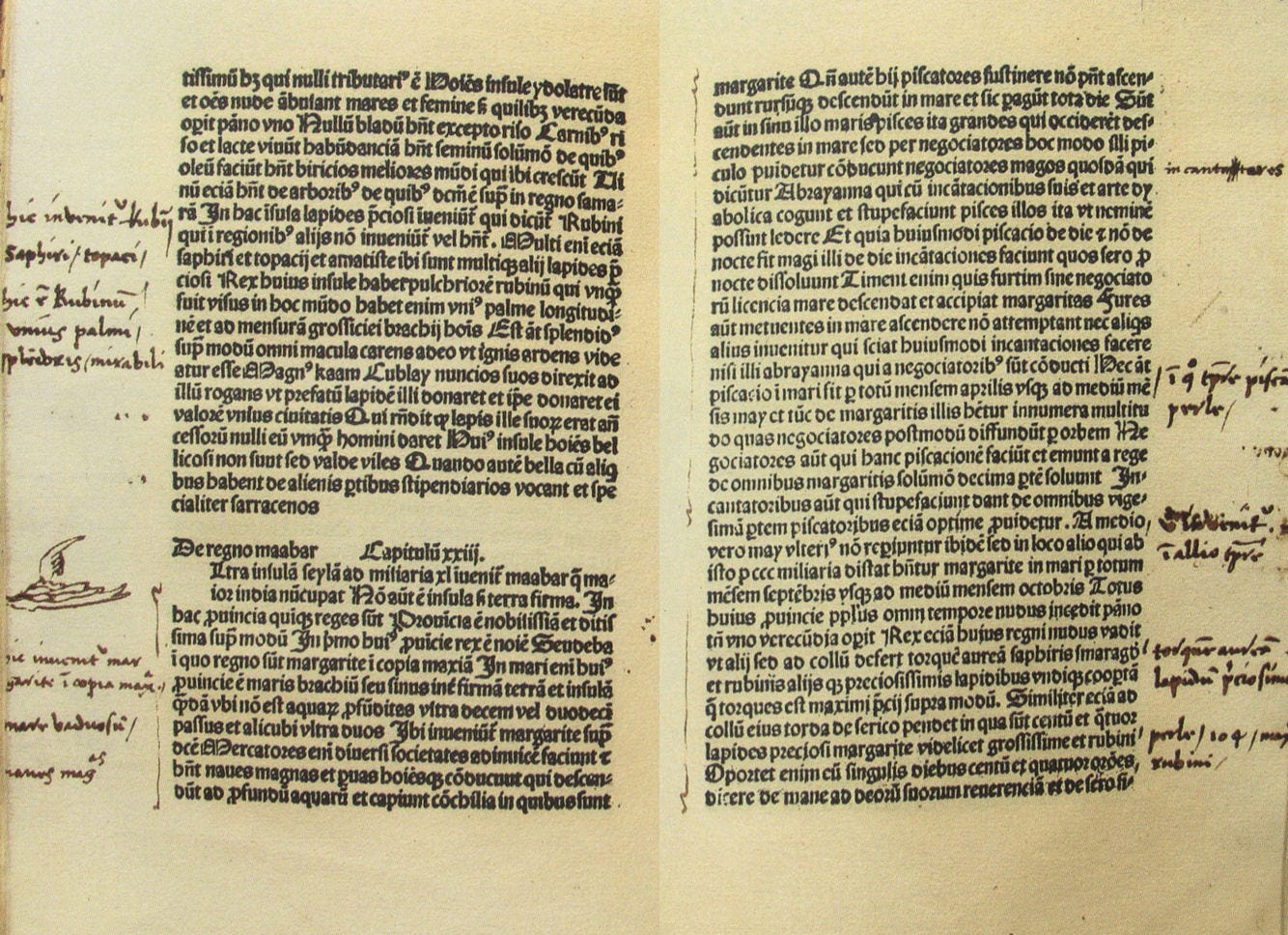
Let little Readers Read!
Download the article here to have your young ones practice their reading skills while learning about the great adventurer, Marco Polo. Also see below for members’ Review & Discussion, Crafts & Games and plenty more…
Keep reading with a 7-day free trial
Subscribe to Classical KIDS to keep reading this post and get 7 days of free access to the full post archives.




